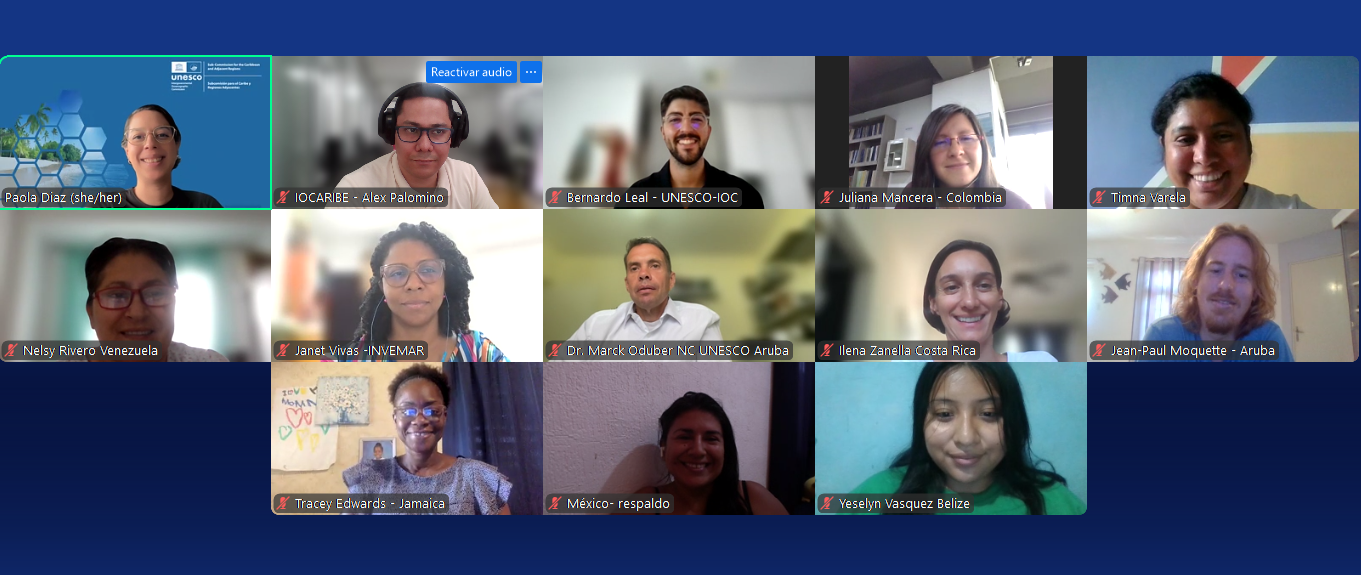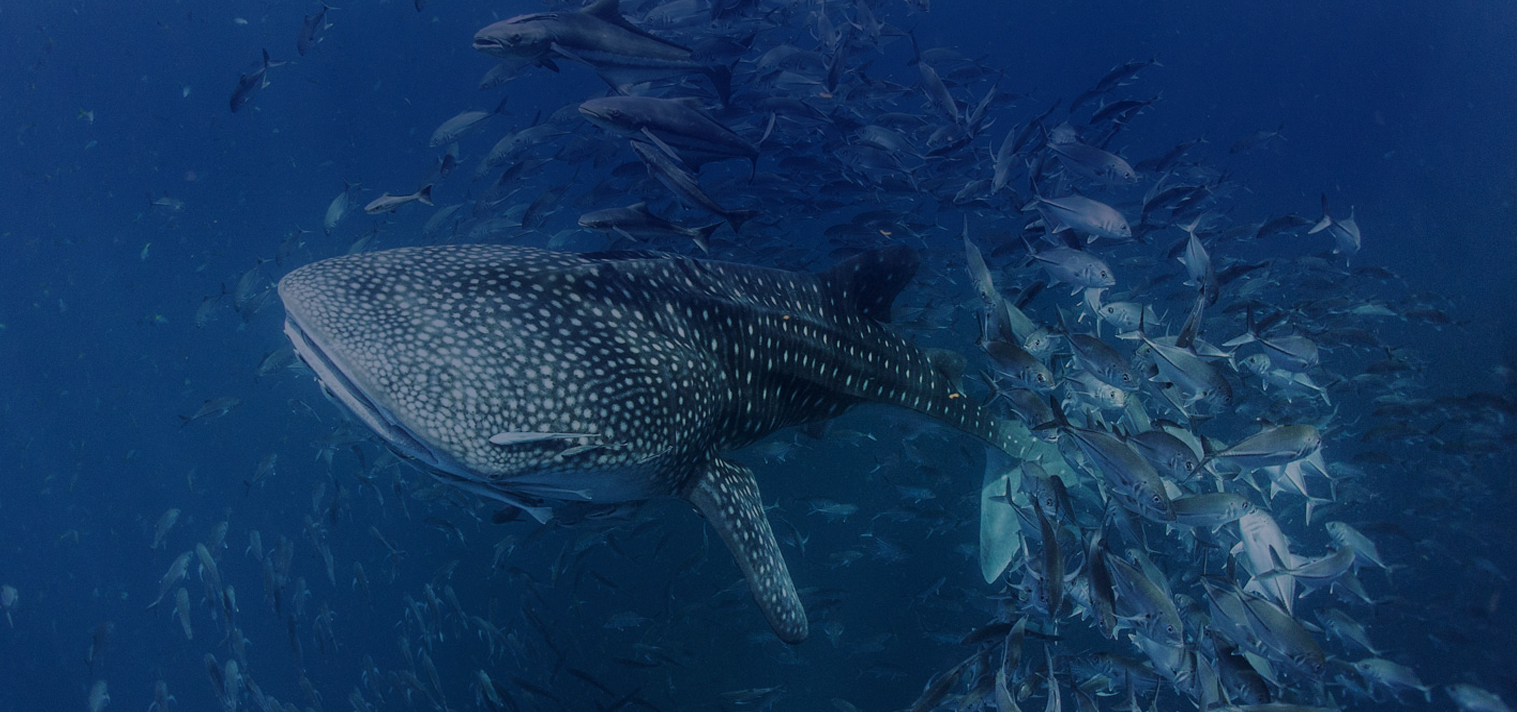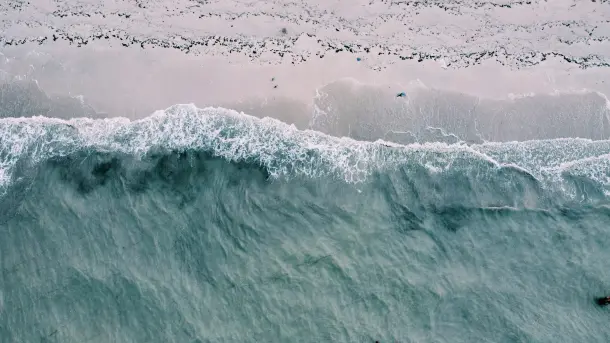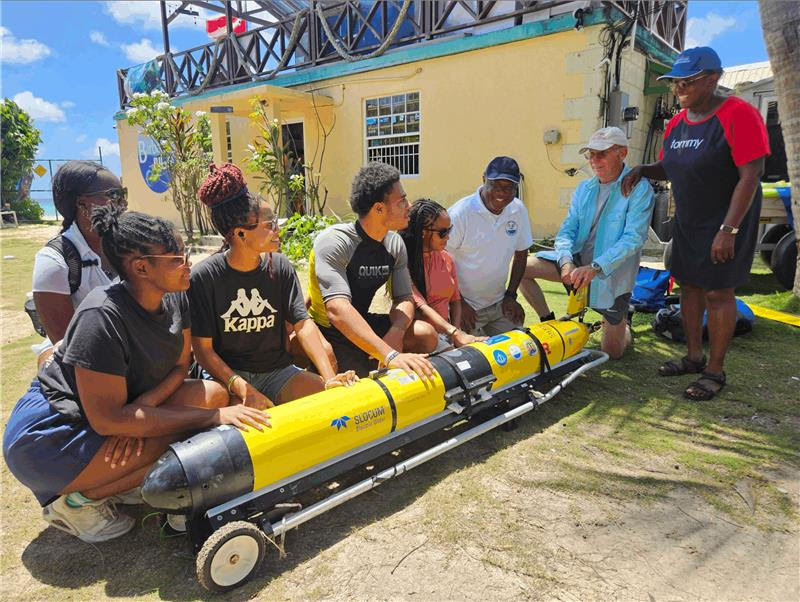Strengthening the Caribbean Blue Schools Network
The Caribbean Blue Schools Network recently held its Second Training Session for National Coordinators, a regional virtual meeting aimed at consolidating efforts and equipping coordinators with the tools needed to advance the program in their countries. The session covered practical steps for implementing the Blue Schools initiative, including the official nomination of national coordinators and ocean literacy focal points, the preparation of national action plans, and the creation of databases to track schools, stakeholders, and progress across the region. Coordinators were also introduced to a comprehensive package of standardized documents—application forms, evaluation templates, and recognition guidelines—that will serve as the foundation for building consistent national programs.

19 August 2025
Many coordinators have already made notable strides in engaging schools in their countries. These experiences form a strong starting point for the network, which seeks to reinforce and expand such initiatives through regional support, standardized processes, and improved communication tools. By aligning national efforts under a shared framework, the network aims to accelerate progress while maintaining consistency across the Caribbean. A key topic of discussion was the certification process for pilot schools, which involves supporting schools during applications, reviewing their projects, and recognizing achievements once they meet the Blue Schools criteria. Participants emphasized developing evaluation methods that are meaningful yet manageable for teachers, ensuring that recognition highlights the educational value of the program. Communication and visibility were also addressed, including updates on the redesigned Ocean Literacy portal, which will act as a community hub for coordinators and educators.
The session also tackled broader coordination needs, such as strengthening dialogue with ministries of education and UNESCO education representatives, improving information-sharing across the region, and preparing proposals for potential funding opportunities. Collaboration and exchange were highlighted throughout the meeting, with recognition of the progress already achieved and a commitment to maintaining momentum through regular meetings, newsletters, and regional webinars. Although the network is still in its early stages—it was launched earlier this year—it has already established official processes that often take years to develop. This progress is a testament to the dedication of coordinators, the support of the global Blue School programme and IOCARIBE (IOC-UNESCO). Coordinators are true pioneers, laying the foundations for a regional network that will guide schools, inspire students, and promote ocean literacy for years to come.
Thirteen countries are now part of the initiative, with National Coordinators leading local efforts. Many have already made significant advances with schools in their respective countries, supported through official tools, training sessions, and regional guidance. Coordinators are establishing pilot schools, developing national action plans, and implementing certification processes, creating a collaborative framework that strengthens the Caribbean Blue Schools Network and fosters deeper connections between schools and the ocean.






